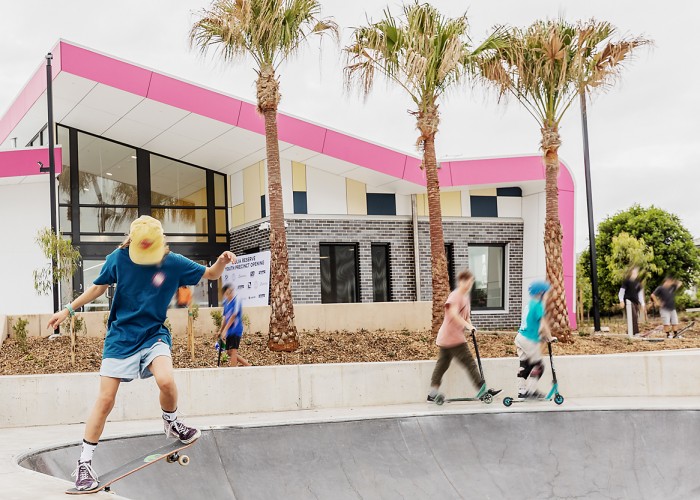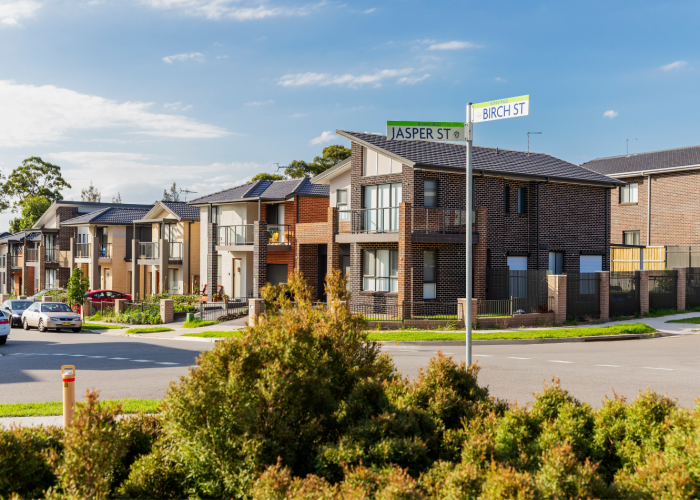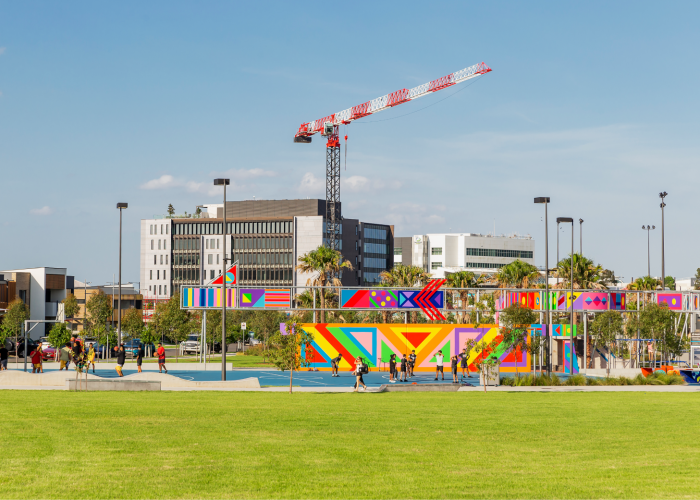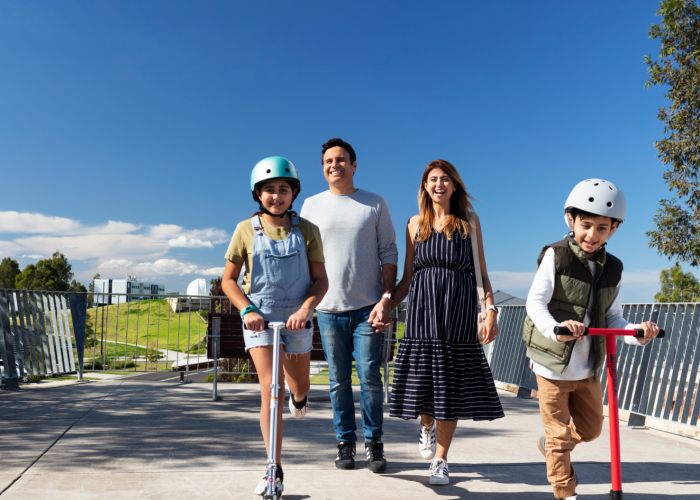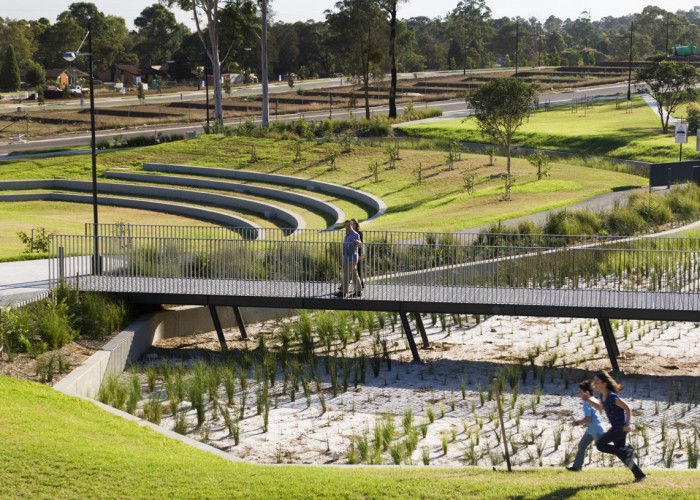Sustainability and learning
Partnerships & Leadership


Sustainability and learning
During FY21 Landcom achieved the significant milestone of being certified as a Carbon Neutral Organisation, under the Climate Active Neutral Standard.
Our carbon offset strategy included the use of 100% Australian Carbon Credits from the rehabilitation of the Darling River Eco Corridor near Lowan in northern NSW. This site is a degraded sheep farm which was showing serious signs of over grazing, feral animal impact and soil erosion due to the overgrazing and loss of the land’s original Brimble Box, Cypress Pine, Yarran and Turpentine tree species, which act as carbon sinks.
We also continued to advance our focus on climate resilience, with an emphasis on identifying, mitigating, and managing our transition risks. Landcom commenced reporting against the Task Force on Climate-related Financial Disclosures (TCFD) in FY20. This is a key component of our approach to addressing climate change physical, transition, and social risks. For more on this see pages 34 and 35 TCFD.
We’re also proud to share our new Human Rights Statement. The purpose of this Statement is to affirm Landcom’s commitment to human rights, acting to ensure our operations uphold and protect the rights of every person in our value chain. Our approach is informed by international best practice initiatives, including the United Nations Guiding Principles, United Nations Global Compact of which Landcom is a Participant, and the Modern Slavery Act 2018 (Cth). We also disclose our contribution to the United Nations Sustainable Development Goals annually, within our Sustainability Report.
To read more about our sustainability achievements throughout FY21, see Landcom’s FY21 Sustainability Report.
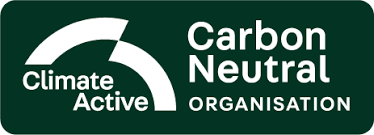
Engaging communities to plan and deliver tomorrow’s neighbourhoods
Our Join In Engagement Charter outlines Landcom’s commitment to stakeholder engagement and continued learning and improvement in our engagement practice, to help us achieve our mandate.
In the midst of the COVID-19 pandemic we adapted the way we engaged with communities. We embraced new technologies to engage online, and we are continuing to invest in web-based tools to connect with communities virtually and enable them to engage with us from the comfort of their homes.
Examples of our work with local communities over the past year which highlight this shift towards more digital engagement methods include:
-
To get feedback on our Cherrybrook project
we undertook a telephone survey alongside an online survey hosted on our website. We also
used a customised digital platform for community representatives to participate in a structured online discussion forum to learn about our plans. The
forum encouraged participants to reflect on the relationship between building heights, design quality, infrastructure provision and development feasibility.We also produced a digital ‘coffee table’ conversation booklet that enabled friends and family to learn about the project together in their own time
and place, consider issues associated with new development and provide us with structured feedback. -
On our Fennell Bay project we held digital focus groups to understand people’s preferences for diverse housing in the Lake Macquarie area and hosted online community information sessions to provide information and invite feedback on our plans to subdivide the site.
-
On our Queenscliff project, after cancelling a planned face-to-face community information session in response to public health guidelines, we used a digital platform to host a number of one-on-one meetings where we invited our neighbours to meet the project team, learn about the planning process for the site and ask questions.
-
We produced a series of videos about our plans for Macarthur Gardens North and invited feedback via an online survey.
Throughout FY21 we relied on our digital channels to help us communicate and stay in touch with our communities.
Looking forward, we will continue to build our capability to engage meaningfully online. We recently partnered with a new digital provider to host a virtual display room where we will be able to display project information and invite people to engage with us as if they were attending a face-to-face session.
Multicultural policies and services program
As a small agency defined under NSW Treasury Circular 15-18, in accordance with Section 18 of the Annual Reports (Statutory Bodies) Regulation 2015 (NSW) Landcom is required to include information about its multicultural policies and services program in its Annual Report once every three years. We reported in 2019 and the next report will be in 2022.
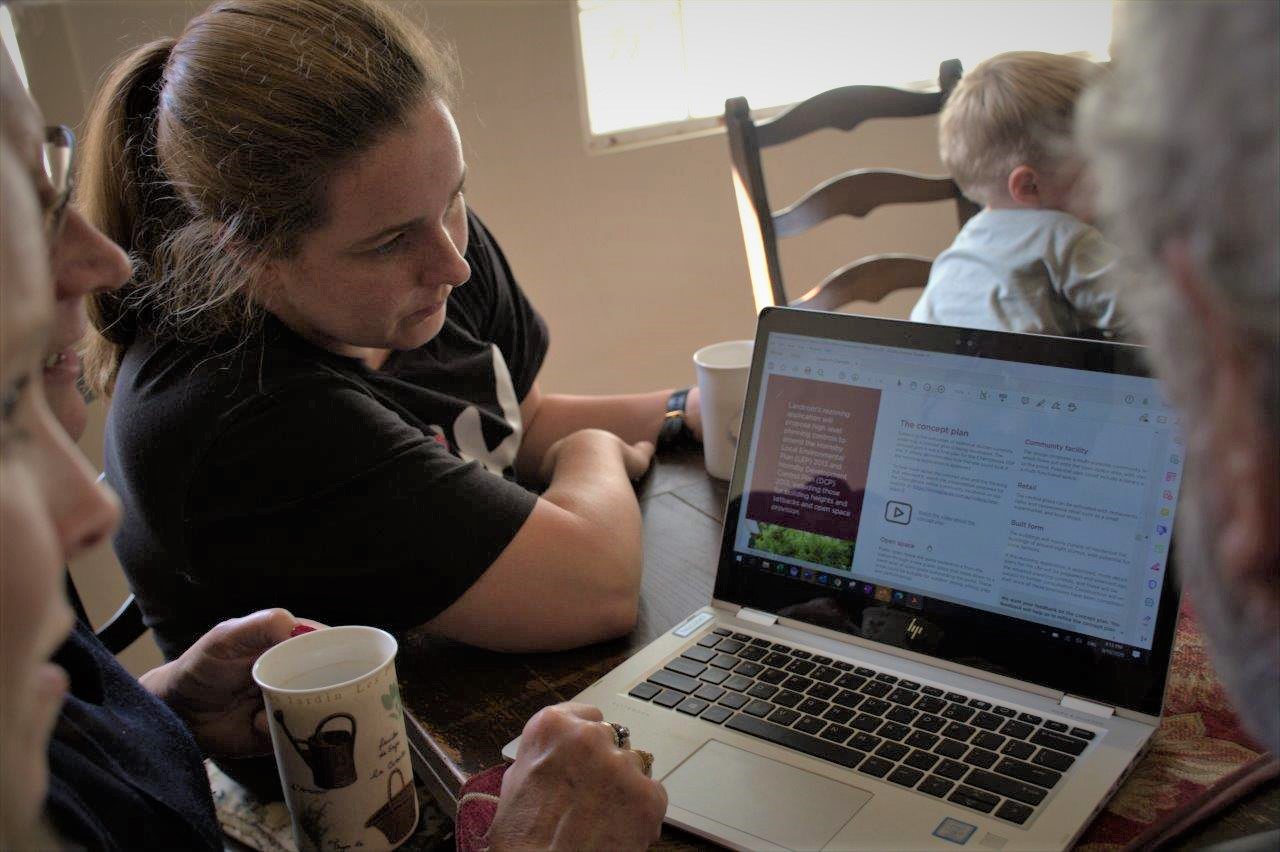
Digital engagement
